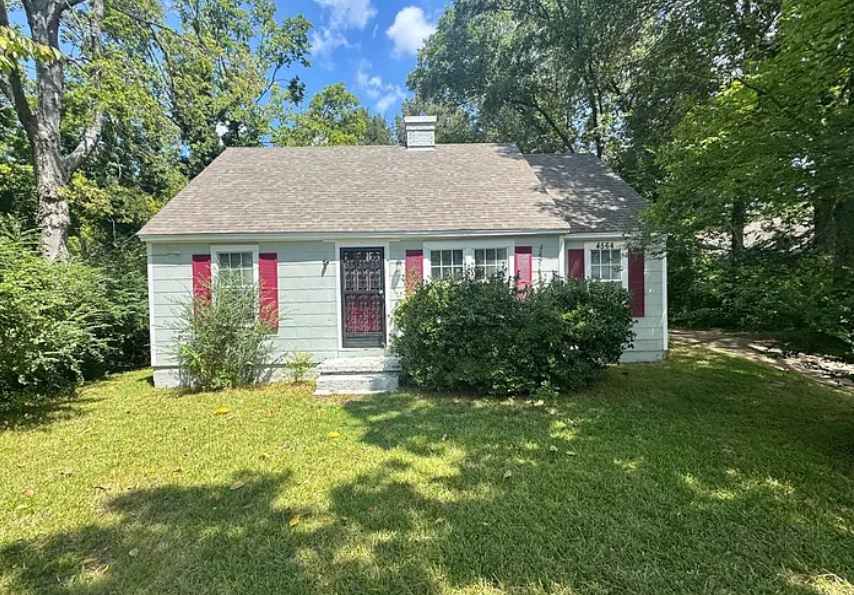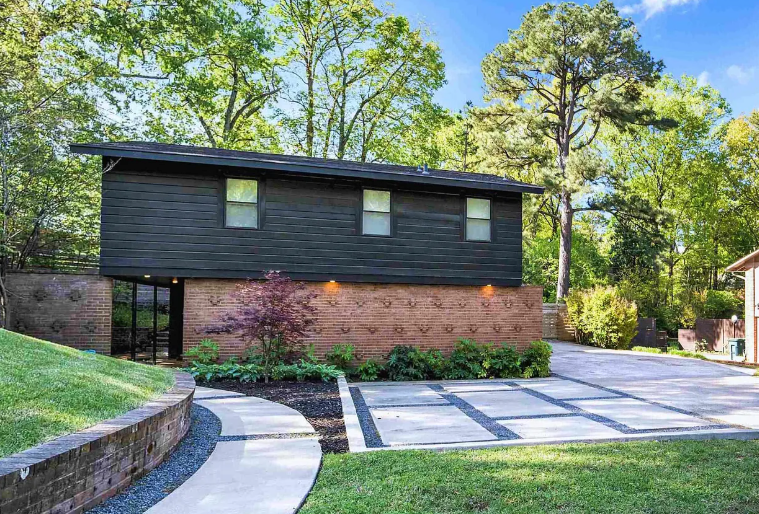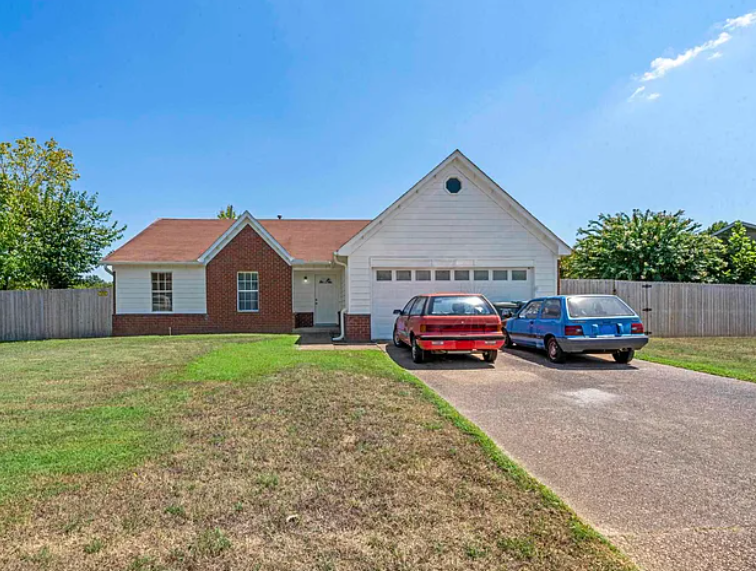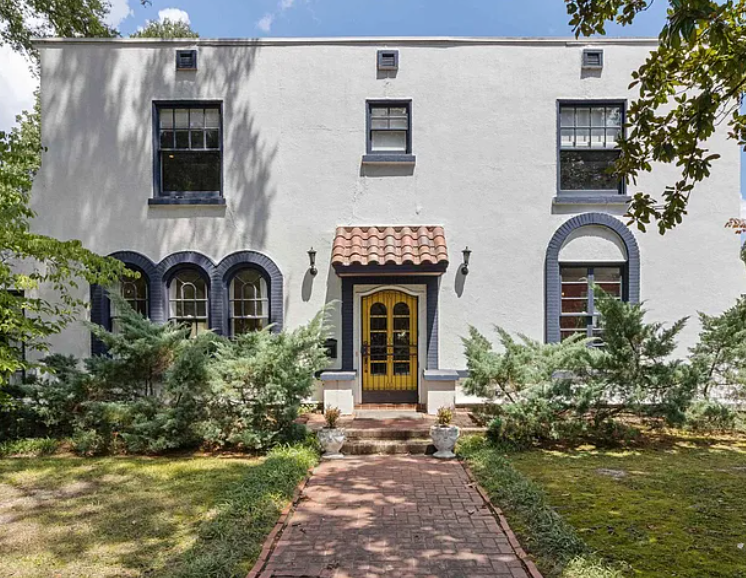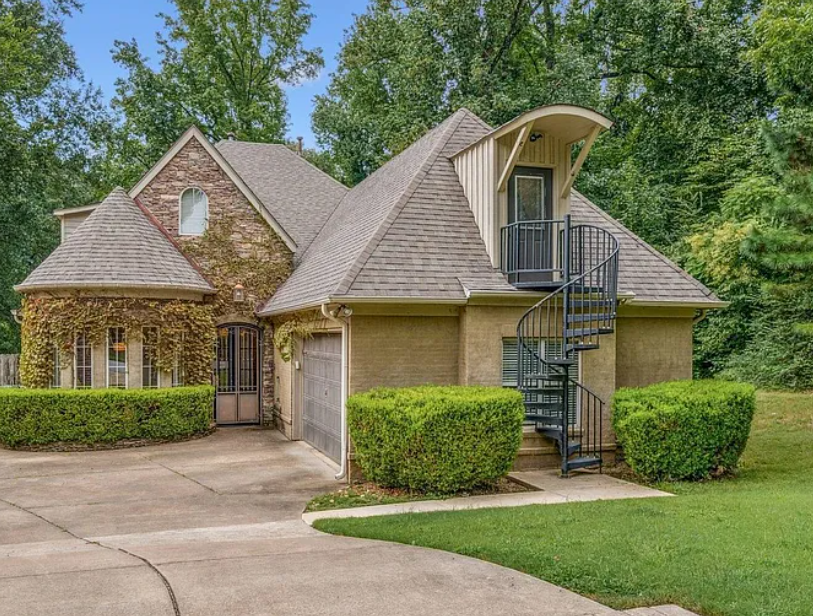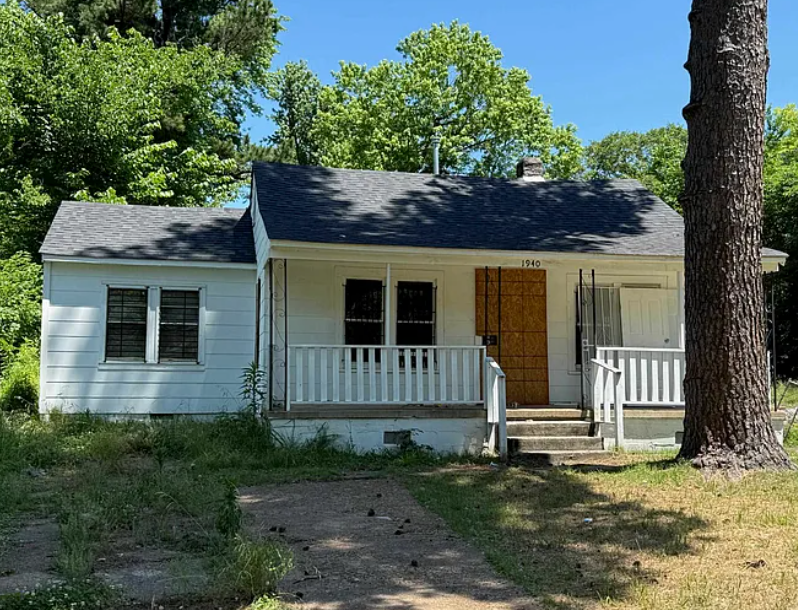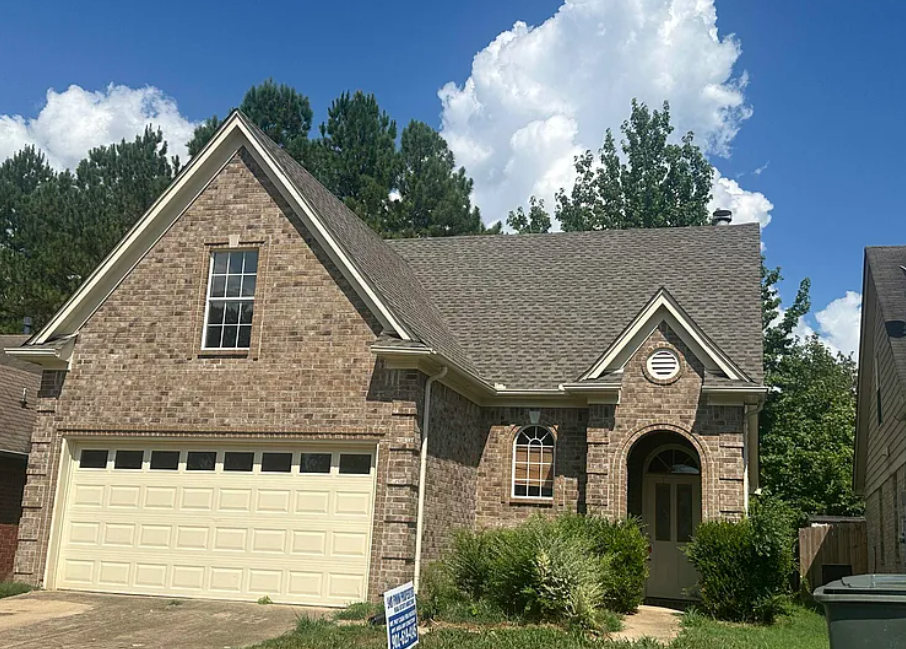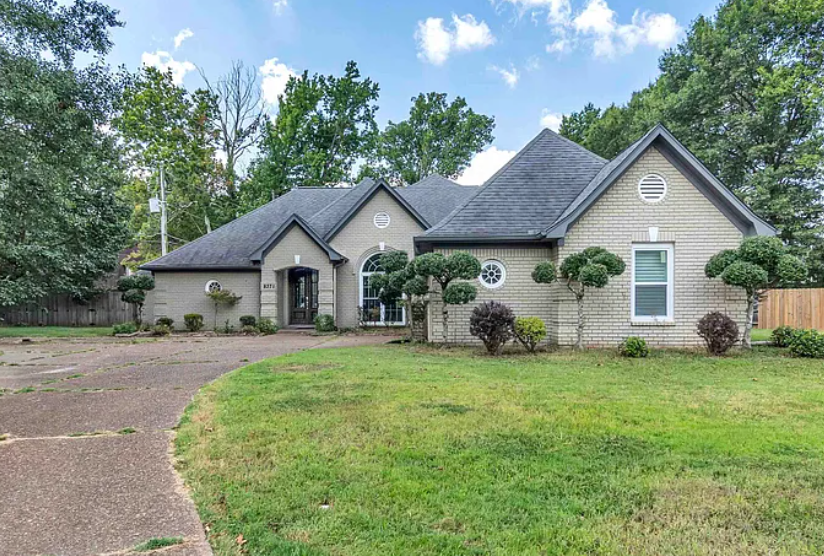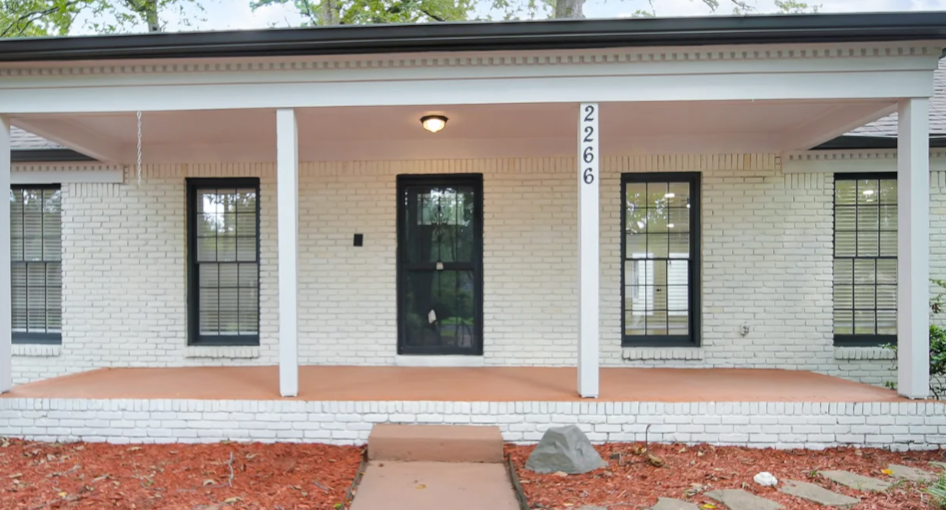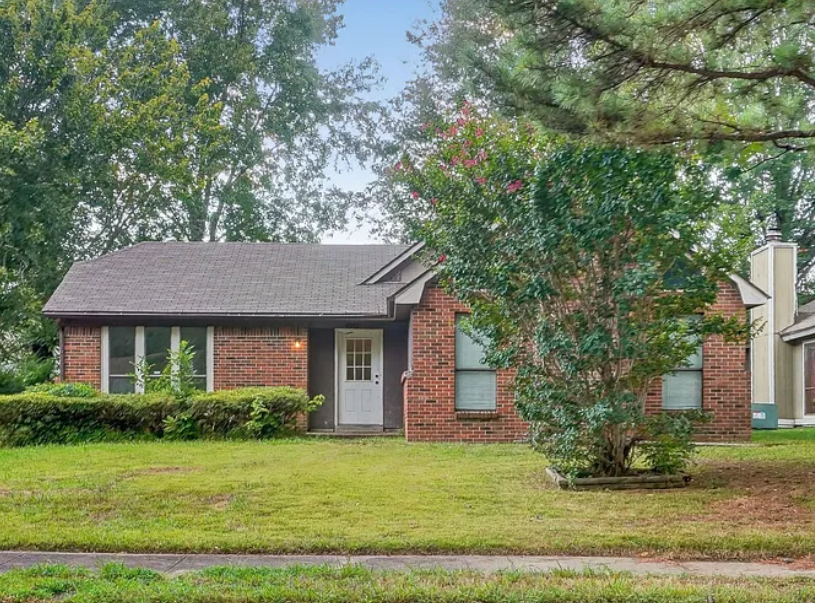Memphis Home Repair Costs vs. Selling As-Is: A 2025 Financial Analysis

The decision between investing in home repairs before selling or selling your Memphis property as-is represents one of the most important financial choices homeowners face when preparing to sell. With Memphis's median home price reaching $204,625 in 2025 and homes selling in an average of 31 days, understanding the true costs and benefits of repairs versus as-is sales can mean the difference between maximizing your net proceeds and making costly mistakes that reduce your overall return.
Memphis homeowners face unique considerations when evaluating repair investments, including the city's diverse housing stock ranging from historic homes in Midtown to suburban developments in Germantown, varying neighborhood market conditions, and the strong presence of cash buyers who specialize in purchasing properties regardless of condition. These local factors significantly influence whether repair investments will generate positive returns or whether selling as-is provides better financial outcomes.
The Memphis market's current conditions, including homes selling at a 16.9% premium above long-term pricing trends and strong cash buyer activity throughout Shelby, Fayette, Tipton, and DeSoto counties, create opportunities for both repair-and-sell strategies and as-is sales that can achieve homeowners' financial and timeline objectives. However, success requires understanding local repair costs, market preferences, and the realistic returns that different improvement strategies can generate in Memphis's specific market environment.
Making informed decisions about repairs versus as-is sales requires analyzing your property's condition, your financial resources, your timeline constraints, and the current market conditions in your specific Memphis neighborhood. This comprehensive analysis helps homeowners avoid common mistakes while maximizing their net proceeds from property sales.
Understanding Memphis Home Repair Costs
Memphis's construction costs, labor rates, and material prices create a specific cost environment that homeowners must understand when evaluating potential repair investments. The city's relatively affordable cost of living translates into lower labor costs than many major metropolitan areas, but material costs and permit requirements can still make repairs expensive relative to potential returns.
Major System Repairs and Replacements
Roof replacement represents one of the most significant repair expenses Memphis homeowners face, with costs typically ranging from $8,000 to $15,000 for average-sized homes depending on materials, complexity, and contractor selection. Memphis's climate, with hot summers and occasional severe weather, creates roof wear patterns that often require complete replacement rather than partial repairs for homes over 15 years old.
The return on investment for roof replacement in Memphis varies significantly by neighborhood and buyer type. In established areas like East Memphis or Germantown, new roofs may add $8,000 to $12,000 in value while costing $10,000 to $15,000 to install, resulting in negative returns for sellers. However, properties with failing roofs may be difficult to sell through traditional channels, making roof replacement necessary for marketability rather than profit.
HVAC system replacement costs in Memphis typically range from $5,000 to $12,000, depending on system size, efficiency ratings, and installation complexity. Memphis's climate demands reliable air conditioning, making HVAC condition crucial for buyer acceptance. However, HVAC improvements rarely add dollar-for-dollar value, with returns typically ranging from 60% to 80% of installation costs.
Foundation repairs in Memphis can range from $3,000 for minor issues to $25,000 or more for major structural problems. Memphis's clay soil conditions and occasional flooding create foundation challenges that can be expensive to address properly. Foundation issues often prevent traditional sales entirely, making repairs necessary for marketability rather than value addition.
Kitchen and Bathroom Renovations
Kitchen renovations in Memphis range from $15,000 for basic updates to $50,000 or more for high-end remodels. The return on investment varies significantly by neighborhood, with upscale areas potentially supporting higher-end finishes while modest neighborhoods may not justify premium improvement costs.
Memphis buyers' preferences for updated kitchens create pressure for sellers to invest in improvements, but the costs often exceed the value added. Basic kitchen updates, including new appliances, countertops, and paint, may provide better returns than complete renovations for most Memphis properties.
Bathroom renovations typically cost $8,000 to $20,000 per bathroom, depending on the scope of work and finish quality. Like kitchens, bathroom improvements rarely add dollar-for-dollar value but may be necessary for marketability in competitive neighborhoods.
Cosmetic Improvements and Curb Appeal
Interior painting represents one of the most cost-effective improvements Memphis homeowners can make, typically costing $2,000 to $5,000 for whole-house painting while potentially adding $3,000 to $8,000 in perceived value. Fresh paint helps properties show better and can make other improvements appear more valuable.
Flooring improvements, including carpet replacement or hardwood refinishing, typically cost $3,000 to $10,000 depending on materials and square footage. Memphis buyers often prefer hardwood floors, making refinishing existing hardwood a potentially valuable investment in appropriate neighborhoods.
Landscaping and curb appeal improvements typically cost $1,000 to $5,000 but can significantly impact buyer interest and perceived value. Memphis's climate supports year-round landscaping that can enhance property presentation and neighborhood appeal.
Market Analysis: Repair Returns in Memphis Neighborhoods
The return on investment for home improvements varies significantly across Memphis neighborhoods, reflecting different buyer demographics, price points, and market expectations that influence whether repair investments generate positive returns.
East Memphis: Premium Market Expectations
East Memphis's established neighborhoods and higher property values create market conditions where buyers expect updated homes and may be willing to pay premiums for quality improvements. However, the area's higher property values also mean that improvement costs represent smaller percentages of total value, potentially supporting better returns on investment.
Kitchen and bathroom renovations in East Memphis may generate returns of 70% to 90% of investment costs when executed with appropriate finishes and quality. However, over-improving for the neighborhood can result in negative returns when improvement costs exceed what the local market will support.
Roof and HVAC improvements in East Memphis typically generate returns of 60% to 80% of costs, with the primary benefit being marketability rather than value addition. Properties with failing major systems may be difficult to sell in East Memphis's competitive market, making these improvements necessary for successful sales.
Midtown Memphis: Character and Charm Focus
Midtown Memphis buyers often prioritize character and charm over modern updates, creating different improvement priorities than suburban markets. Improvements that preserve historic character while adding modern functionality often generate better returns than complete modernization projects.
Kitchen improvements in Midtown may focus on preserving original features while adding modern appliances and functionality, with costs and returns varying based on the property's historic significance and buyer preferences for authenticity versus modernization.
Mechanical system improvements in Midtown often generate strong returns because buyers expect reliable systems while preferring to avoid major repair projects. Updated electrical, plumbing, and HVAC systems can significantly improve marketability in Midtown's older housing stock.
Suburban Areas: Move-In Ready Expectations
Suburban Memphis areas, including Germantown, Collierville, and newer developments, typically attract buyers who expect move-in ready conditions and modern amenities. These expectations can make improvements necessary for competitive positioning rather than value addition.
Cosmetic improvements in suburban areas often generate strong returns because buyers expect updated finishes and may be willing to pay premiums for properties that don't require immediate work. However, major renovations may not generate proportional returns in markets with abundant newer construction.
Transitional Neighborhoods: Investment Potential
Memphis's transitional neighborhoods, including areas undergoing revitalization or gentrification, create opportunities for strategic improvements that can generate substantial returns when market timing and improvement selection align with neighborhood trends.
Improvements in transitional neighborhoods require understanding future market potential rather than current conditions, making them riskier but potentially more rewarding for sellers who can accurately assess neighborhood trajectories.
The Case for Selling As-Is
Selling properties as-is eliminates repair costs and timeline delays while providing certainty about net proceeds, making this approach attractive for many Memphis homeowners despite potentially lower sale prices.
Financial Benefits of As-Is Sales
As-is sales eliminate the upfront costs of repairs, which can range from $10,000 to $50,000 or more for properties needing significant work. These cost savings provide immediate financial benefits that may exceed the additional proceeds that repairs might generate.
The certainty of as-is sales eliminates the risk that repair investments won't generate expected returns or that additional problems will be discovered during renovation projects. This certainty can be particularly valuable for homeowners with limited financial resources or tight timelines.
As-is sales also eliminate the time and stress associated with managing repair projects, obtaining permits, coordinating contractors, and dealing with potential complications that can delay sales and increase costs beyond initial estimates.
Cash Buyer Market Advantages
Memphis's strong cash buyer presence creates viable markets for as-is properties throughout the metropolitan area. Cash buyers typically purchase properties regardless of condition, providing sellers with alternatives to traditional buyers who may require repairs or updates.
Cash buyers often have renovation experience and established contractor relationships that allow them to complete improvements more efficiently and cost-effectively than individual homeowners. This efficiency means they can often pay reasonable prices for as-is properties while still generating acceptable returns on their investments.
The speed of cash transactions, typically closing within 2 to 4 weeks, provides sellers with quick resolution of property sales without the extended timelines associated with repair projects and traditional sales processes.
Risk Elimination Benefits
As-is sales eliminate the risks associated with repair projects, including cost overruns, timeline delays, contractor problems, and the discovery of additional issues that can increase project scope and expense.
Repair projects can uncover hidden problems, such as electrical issues, plumbing problems, or structural concerns, that significantly increase costs beyond initial estimates. As-is sales transfer these risks to buyers who are better equipped to handle renovation challenges.
The Memphis market's seasonal weather patterns can affect repair project timelines and costs, particularly for exterior work that may be delayed by rain, heat, or other weather conditions. As-is sales eliminate these weather-related risks and timeline uncertainties.
Financial Analysis Framework
Developing a systematic approach to evaluating repairs versus as-is sales helps Memphis homeowners make informed decisions based on their specific circumstances and market conditions.
Cost-Benefit Analysis Methodology
Effective analysis begins with obtaining realistic estimates for needed repairs from licensed contractors who understand Memphis market conditions and building requirements. These estimates should include materials, labor, permits, and contingencies for potential complications.
Market analysis should include recent sales of similar properties in both updated and as-is conditions to understand the price premiums that improvements might generate. This analysis should focus on properties in your specific neighborhood rather than metropolitan area averages.
Timeline analysis should consider both the time required for repairs and the additional time that improved properties might take to sell compared to as-is sales to cash buyers. Extended timelines create carrying costs that reduce net proceeds from repair investments.
Break-Even Analysis
Break-even analysis helps determine the minimum value increase needed to justify repair investments after considering improvement costs, carrying costs during repair periods, and additional selling expenses that might result from traditional sales processes.
For example, a $20,000 kitchen renovation that extends the sale timeline by three months might require $25,000 in additional sale proceeds to break even after considering improvement costs, carrying costs, and the time value of money.
Memphis homeowners should also consider their opportunity costs, including alternative investments they might make with repair funds and the benefits of faster property sales that provide immediate access to sale proceeds.
Risk Assessment
Risk assessment should consider the probability that repair investments will generate expected returns, the potential for cost overruns or timeline delays, and the availability of alternative sale methods if repair strategies don't succeed.
Memphis market conditions can change during repair periods, potentially affecting the returns that improvements generate. Homeowners should consider whether they can afford potential losses if market conditions deteriorate or if repairs don't generate expected value increases.
Decision-Making Factors
Several key factors should influence Memphis homeowners' decisions about repairs versus as-is sales, with the relative importance of each factor depending on individual circumstances and priorities.
Financial Resources and Risk Tolerance
Homeowners with limited financial resources may find as-is sales more attractive because they eliminate upfront repair costs and provide certainty about net proceeds. Repair investments require available capital and tolerance for potential losses if improvements don't generate expected returns.
Risk tolerance varies among homeowners, with some preferring the certainty of as-is sales while others are willing to invest in improvements for potentially higher returns. Understanding your risk tolerance helps guide decision-making about repair investments.
Timeline Constraints
Homeowners facing timeline constraints due to job relocations, financial pressures, or other factors may find as-is sales more attractive because they can close quickly without repair delays. Cash buyers can often close within 2 to 4 weeks compared to 3 to 6 months for repair-and-sell strategies.
Repair projects can experience delays due to weather, contractor availability, permit processing, or unexpected complications that can extend timelines beyond initial estimates. These delays can be particularly problematic for homeowners with firm deadlines for property sales.
Property Condition and Improvement Potential
Properties needing only cosmetic improvements may benefit from repair investments, while those requiring major system replacements or structural work may be better candidates for as-is sales. The scope and cost of needed improvements significantly influence the potential returns from repair investments.
Properties with unique features or strong bones may justify repair investments even when current condition is poor, while properties with fundamental limitations may not support improvement investments regardless of current condition.
Market Conditions and Buyer Preferences
Current Memphis market conditions, including inventory levels, buyer preferences, and seasonal factors, influence whether repair investments are likely to generate positive returns. Strong seller's markets may support repair investments while buyer's markets may favor as-is sales.
Neighborhood-specific market conditions can vary significantly within Memphis, making local market analysis crucial for decision-making about repair investments. Some neighborhoods may strongly favor updated properties while others may be more accepting of as-is conditions.
Professional Guidance and Resources
Making informed decisions about repairs versus as-is sales often benefits from professional guidance that can provide objective analysis and market expertise.
Contractor Consultations
Licensed contractors can provide realistic estimates for needed repairs while helping homeowners understand the scope and complexity of improvement projects. Multiple estimates help ensure accurate cost projections and identify potential complications.
Contractors familiar with Memphis market conditions can provide insights into which improvements are most valued by local buyers and which projects typically generate positive returns on investment.
Real Estate Professional Input
Experienced real estate agents can provide market analysis that helps homeowners understand the potential returns from repair investments compared to as-is sale options. This analysis should include recent sales data and current market conditions.
Real estate professionals can also help homeowners understand buyer preferences in their specific neighborhoods and price ranges, providing insights into which improvements are most likely to generate positive returns.
Cash Buyer Consultations
Consulting with reputable cash buyers can provide homeowners with realistic as-is sale options that can be compared to repair-and-sell strategies. These consultations help establish baseline values for as-is sales that can inform decision-making about repair investments.
Cash buyers often have extensive renovation experience and can provide insights into repair costs and potential returns that help homeowners evaluate their options objectively.
Conclusion: Making the Right Choice for Your Memphis Property
The decision between investing in repairs or selling as-is depends on multiple factors specific to your property, financial situation, timeline, and risk tolerance. Memphis's diverse market conditions and strong cash buyer presence provide homeowners with viable options for both approaches, making careful analysis crucial for optimal outcomes.
Successful decision-making requires realistic assessment of repair costs, honest evaluation of potential returns, and clear understanding of your priorities regarding timeline, financial outcomes, and risk tolerance. Memphis homeowners who take time to analyze their options thoroughly often achieve better outcomes than those who make decisions based on assumptions or incomplete information.
The Memphis market's current conditions provide opportunities for both repair investments and as-is sales, but success requires matching your strategy to your specific circumstances and market conditions. Whether you choose to invest in improvements or sell as-is, understanding the true costs and benefits of each approach helps ensure that your decision supports your financial goals and timeline requirements.
Remember that the best choice for your situation may not be the same as what works for other homeowners, even in similar circumstances. Focus on your specific needs, resources, and objectives when making this important financial decision about your Memphis property.
Request Your Offer Now
